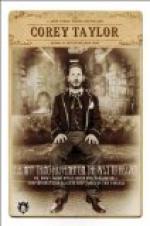CHAPTER XII
He was too tired, too utterly relaxed by warmth and medicine, to think clearly. To-morrow he would find Carmencita, and she should get the things the children wanted. They were very strange, the places and people he had seen to-day. Of course he had known about such places and people, read about them, heard about them, but seeing for one’s self was different. There were a lot of bummers among these people he had passed; much of their misery was of their own making (he had made much of his), but the wonder was they were no worse.
Bold, bad faces, cold, pinched, hungry ones, eager, earnest, pathetic and joyous, worn and weary, burdened and care-free, they again passed before him, misty and ill-defined, as though the snow still veiled and made them hazy, and none of them he knew. He wished they would stop passing. He was very tired. They, too, were tired. Would they for ever be passing before him, these people, these little children, he had seen to-day? If they would go away he could think more clearly, could think of Frances. She was here, in the house with him. At first it had seemed strange, but it wasn’t strange. It would be strange if she were not here when he needed her, wanted her so. To-morrow would not be too late. One could do a good deal on Christmas eve. Everybody had been busy except himself. He would telephone to-morrow and tell Herrick to close the office and give Miss Davis holiday until after New-Year.
But she had nowhere to go. He had heard her tell Herrick so, and Herrick had nowhere to go, either. Both lived in boarding-houses, he supposed. He had never thought to ask. Herrick was a faithful old plodder—never would be anything else—but he couldn’t get on without him. He ought to raise his salary. Why didn’t Herrick ask for more money if he wanted it? And then he could get married. Why didn’t he get married, anyhow? Once or twice he had seen him talking to Miss Davis about something that evidently wasn’t business. She was a pretty little thing and quick as lightning—just the opposite of old Herrick. Wouldn’t it be funny if they were in love; not, of course, like—
They had nowhere to go Christmas. If Frances would let them they might come here—no, not here, but at his home, their home. His home was Frances’s. It wouldn’t be home for him if it weren’t for her also. He would ask her. And Carmencita and her blind father, they could come, too. It would be horrible to have a Christmas dinner of sardines or toasted cheese and crackers—or one in a boarding-house. Other people might think it queer that he should have accidentally met Carmencita, and that Carmencita should have mentioned the name of Miss Barbour, and that he should have walked miles and miles—it must have been thousands of miles—trying to find her, and, after all, did not find her. She found him. But it wasn’t queer. He had been looking for her ever since—for three years he had been looking for her, and what one looks for long enough one always finds. To-morrow—to-morrow—would —be—Christmas eve.




